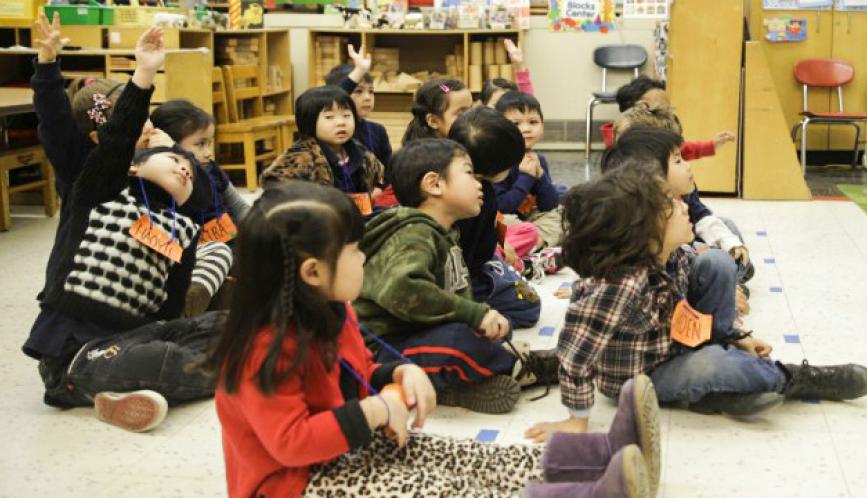In an op-ed for The Hill, HCEO Co-director James Heckman and J.B. Pritzker write about the importance of combining early childhood education with greater access to preschool in order to promote social mobility across generations. Heckman and Pritzker urge the new administration to make child care more affordable by subsidizing quality early childhood education from birth to age three and then expanding access to quality preschool starting at age four.
"Greater access to child care frees parents — primarily single mothers — to work and attend school," the authors write. They caution that not all child care has the same benefits, Professor Heckman's research shows that low quality child care can actually be harmful to children. The payoffs for high quality child care, however, are substantial. His recent working paper, "The Life-cycle Benefits of an Influential Early Childhood Program," shows that "the annual rate of return on quality child care for disadvantaged children is 13.7 percent per annum." The ROI is calculated by returns on improved education, health, social and economic outcomes for children, in addition to economic gains made by mothers.
Heckman and Pritzker write that the biggest gains come when quality child care is linked to quality preschool. "Unfortunately, many policymakers see child care and preschool as separate issues when they should be viewed as one, comprehensive, effective early childhood experience," they write. Evidence shows that disadvanted families benefit the most from such programs, therefore it makes the most sense to provide these families with subsidized child care.
If child care and preschool are linked, two generations of Americans benefit. Such a policy, the authors write, "advances social mobility for parents by promoting earnings, attachment to the workplace, educational attainment, and work experience." And it provides children with lifelong skills, leading to higher lifetime earnings and better health. As Heckman and Pritzker note, "Lowering costs, raising quality, and improving outcomes is just good public policy."
James Heckman is the Henry Schultz Distinguished Service Professor of Economics at the University of Chicago and the Director of the Center for the Economics of Human Development. The Center would like to thank the Pritzker Children's Initiative for their support of this research.
You can read the op-ed here. You can read "The Life-cycle Benefits of an Influential Early Childhood Program" here.



